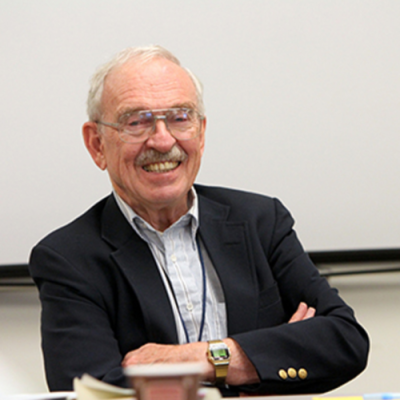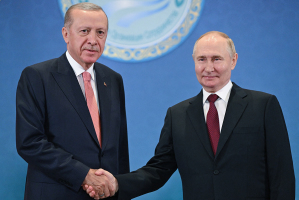The pastor's dilemma in an election year
The right pastoral response is complicated in any election year. This year, a triple reality makes it even more difficult: the most important election since 1860; COVID-19 and the massive shut down of the economy; and then the swelling movement (alas, sometimes harmed by violent people) for racial justice resulting from the murder of George Floyd.

In any year, the pastor’s role is complicated. You have people with many political viewpoints in the congregation. Anything you say has the possibility of offending or even driving away important members of your congregation.
So what should the pastor do?
My first comment is that I have long believed and continue to believe that normally, except for very unusual circumstances, pastors should not endorse specific political legislation or specific political candidates. Apart from the fact that it is illegal for a pastor to endorse a political candidate in the name of the church, there are good theological and other reasons for not doing that. For one thing, political issues are enormously complex and pastors have no specific political wisdom simply because they are pastors. Furthermore, the theological truth that our oneness in Christ is much more important and basic than political disagreements means that the pastor should definitely not divide a congregation with frequent political pronouncements.
So what should a pastor do in an election year? The pastor’s primary task is to help his or her congregation develop a biblically grounded framework for thinking about politics.
Some people, of course, feel that politics is so complicated and so corrupt that good Christians should simply ignore it. But that is wrong for both a practical and a theological reason.
Practically, political decisions affect the lives of millions and millions even billions of people. In the case of the American president and major American political leaders, their decisions literally affect the lives of billions of people around the world. History demonstrates the importance of political decisions. William Wilberforce, the great 18th century evangelical politician converted in the Wesleyan revival, worked for 30 plus years, eventually persuading the British Parliament to outlaw the slave trade and then slavery itself. That improved the lives of millions of people. In the 1930s, German Christians played an important role in electing Adolf Hitler. Think of the incredible evil that could have been avoided if German Christians had made a different political decision. Politics is simply too important to ignore.
But the theological reason for engaging in politics is even more important. Our basic Christian confession is that Jesus is Lord. That means he is Lord of all of life and that includes our politics. So if we are to live out our most essential Christian confession, we must ask how we can let Christ be Lord of our politics.
So what concretely should pastors do? The pastor’s primary responsibility is to help his or her congregation develop a biblically grounded framework for thinking about politics.
Political decisions always have four components even though most people do not think carefully about these components of their political thinking.
The first part is a normative framework. Every political judgment no matter how simple, must include some basic understanding of the nature of persons and the nature of justice. Christians want their normative framework to be shaped by Jesus and the Bible, not some secular source.
Second, we need a broad study of history. There is no place in the Bible that tells us how to deal with Covid-19 or the minimum wage. We need to study the science, economics, history and politics that are relevant to political issues.
But third we also need a political philosophy. Every time we want to make a political decision, we can’t spend five years studying the Bible for a normative framework and another five years studying the relevant socio-economic data. We need a handy roadmap, a simple guide. That is what a political philosophy is. It should come from a combination of a normative biblical framework and a careful study of the world.
And then finally, fourth, we need to apply that political philosophy to every specific political decision.
The primary role of the pastor is to help his or her congregation develop this basic normative framework for thinking about politics. We need to study the Bible to learn about the nature of justice, God’s concern for the poor, the dignity of persons, religious freedom, the importance of family, God’s concern for creation — and more.
One absolutely essential task of the pastor in helping the congregation develop a biblically grounded framework is to help the congregation understand and embrace what the National Association of Evangelicals calls a “biblically balanced” approach to politics. In my lifetime I have had good friends who said the most important, overriding, political issue was global poverty or abortion or the nuclear arms race or family. I have always responded by saying, “I agree, that is a very important issue and I think biblical faith affirms that.” But then I added that if we want to be biblical in our politics, we must ask what the Bible says God cares about. And when we ask that question, it becomes clear that God cares both about the sanctity of human life and justice for the poor. Both about marriage and racial justice. Both about sexual integrity and peacemaking and care for creation and religious freedom.
The National Association of Evangelicals has a very important unanimously adopted public policy document called For the Health of the Nation. This document says that “faithful evangelical civic engagement and witness must champion a biblically balanced agenda.” Then the document goes on to develop eight major sections on: the sanctity of human life, marriage, justice and compassion for the poor, racial justice, peacemaking, care for creation, human rights and religious freedom. The National Association of Evangelicals says that a biblically balanced political agenda will be concerned with all of those issues, not just one or two. Helping your congregation understand this biblically balanced agenda is a crucial part of the pastor’s role in faithfully shaping a congregation’s political engagement. (Obviously, there are a number of ways to do that: Sermons, Sunday School materials, small group materials, etc.)
One more suggestion. We all know that political debate in our country today is enormously divisive. There are huge divisions that seem to prevent politicians from talking across the divides and reaching reasonable compromise. As a result, the political process is often in gridlock. Perhaps Christians could model a new kind of respectful, honest political dialogue that might offer a model for the whole country.
Here is a radical suggestion. Develop one or more political discussion groups in your congregation that include Democrats, Republicans, and Independents. If your congregation doesn’t have that mix, go to another local congregation or two and ask if they would have people who would join you. Then set a few guidelines. Have each group start by trying to develop what they think is a biblically balanced agenda for politics. Then encourage them to try to develop a normative framework for thinking about each of those issues. Encourage them to talk about genuine disagreement but insist that each person listen so carefully to the others that they can repeat what the other person says so well that the other person says, “Yes, that is what I mean.” If the Christian church could model that kind of honest, respectful vigorous political dialogue, we could make a contribution to the whole society.
If that proposal sounds too radical, then I have a much simpler suggestion. Simply develop in your congregation (or with a couple other congregations) prayer groups to pray about the current political election. The most basic rule would be that there would be no political discussion, simply regular prayer that God’s will be done in this important election year. We finite people obviously do not know with any precision what God’s will is but we certainly can pray fervently that God’s will for our society and the world be done in the 2020 elections.
Ronald J Sider is Distinguished Professor emeritus of Theology, Holistic Ministry and Public Policy at Palmer Seminary at Eastern university. He has published 45 books, most recently editing The Spiritual Danger of Donald Trump: 30 Evangelical Christians on Justice, Truth and Moral Integrity.




























